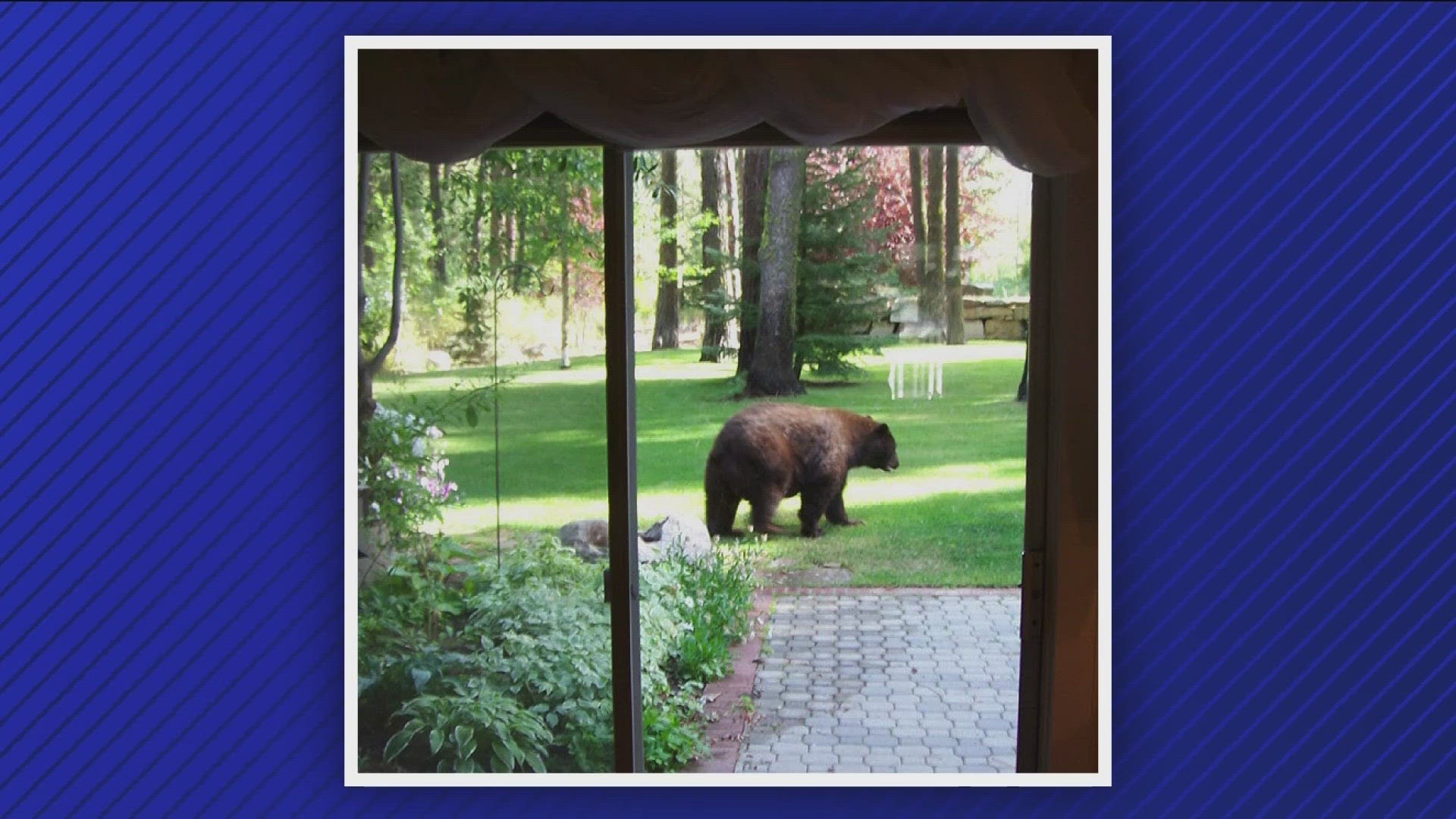IDAHO, USA — The Idaho Department of Fish and Game (IDFG) warns Idahoans that black bears are beginning to emerge from their winter dens. The department added that, the bears emerge very hungry and in order to keep both people and bears safe, people need to secure all food and garbage sources.
"After emerging from hibernation, black bears are on a quest to eat between 15,000 – 20,000 calories a day to build up their fat reserves, which means they are constantly searching for food," IDFG stated. "Bears can smell food for miles. After leaving their winter dens, bears begin to search out food sources by using their extremely keen sense of smell. In fact, it is believed that a bear's sense of smell is seven times better than a bloodhound's and is often measured in miles."
According to IDFG, after hibernating, bears immediately begin scouring for food. The department stated that all Idahoans, but especially people living in the Wood River Valley need to make sure their trashcans are secure.
"Allowing bears to become comfortable living in your neighborhood could be a death sentence - for the bear. While a bear in your yard might be exciting, you must do your part to keep the bear wild," IDFG stated. "Relocation of a food-conditioned bear is not an option. Often, the bear returns to where it was trapped because it knows there is a food reward waiting for them. Moving this bear might also just transfer the problem to another community or campground in the backcountry."
IDFG added that bears are very smart and will learn quickly if they are welcome or not. One way to get a bear to leave your property is to haze them, meaning a person can yell loudly, bang on pots and pans or clap hands loudly, all from a safe distance.
The department also gave tips on how to keep bears away from residential areas:
Secure household garbage in a garage or locked shed where bears cannot gain access to the garbage.
Don't put your garbage curbside until the morning of pickup.
Use bird baths, instead of bird feeders.
Don't leave pet or livestock food outside where a bear can find it.
Put an electric fence wire around chicken coops and beehives.
Watch more coverage of this story
Ongoing coverage of the University of Idaho investigation can be found in our YouTube playlist:

